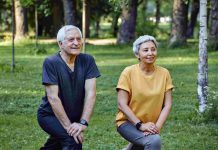Variants of interest
Variants of interest (VOI) on the other hand are those that we have not collected enough data to conclude behavioural changes in the virus. “It is just speculation now. But it is probable that these are variants that have experienced a decrease in function because there are not as many cases reported,” Dr Kenny says. At the time of writing, there are currently seven variants of interest that have popped up on the global radar.
How do these variants affect us?
Dr Kenny says that the situation on the ground remains the same. “The current SOPs still apply. Washing hands, wearing masks and practising social distancing will still give you the same level of protection as before. That hasn’t changed at all. The virus may become more infectious but using the same SOPs will still help to protect us,” said Dr Kenny.
According to him, vaccinations remain as important as they have been shown to still be effective against the variants.
The new knowledge that the virus is airborne should also help us to enhance certain habits such as double masking and washing out air conditioner’s filters more often.
“When we talk about the virus being airborne, it is because both the virus and water vapour are so small they can bind to particles in the air. These particles are less than 2.5 microns and this is what makes it airborne,” explains Dr Kenny adding, swab tests on air conditioner’s filters have found the presence of the virus. “So you actually should wash it more often, if not daily then weekly,” he advises.
Sequencing strains

While Malaysians around the country line up to get their vaccinations, a number of re-infections have surfaced and there is talk that there may be a local strain that has escaped the vaccines.
“Yes, there are suspicions that there is a local strain but we can only be sure if we do intensive genetic sequencing. We do have some data on last year’s strain, but this year it could be different,” Dr Kenny says.
The cost of sequencing is prohibitive, as the cost for one sample can be anything between ten to 20 times more than an RT-PCR test. This is why Malaysia does not have as much sequencing data as the UK, China and the US. “We have to maximise our limited resources,” says Dr Kenny, explaining that we do need to focus on the vaccination programme and economic recovery. “At the moment, in Malaysia, we use sequencing only if it is required,” he says.
However, it remains important to trace and discover different strains as this will allow us to determine if the vaccines are still working, as well as to help ensure future vaccines remain effective.
Post-vaccination infections
Variants are not the only possible reason people are getting infected after vaccination. “After the first and second doses, you still have to protect yourself. It takes about four to six weeks on average to build up antibodies. During this time your body will be focusing on the vaccine and this can leave you more vulnerable to infections,” says Dr Kenny.
Can the vaccines help us to stop transmission? Some data shows that the vaccine reduces virus shedding, i.e. the virus seems to replicate less in vaccinated people but there is not enough information to determine if this reduction is enough to reduce transmission.
“We don’t actually know how much of the virus is needed in one person for it to pass on to others. So even if there’s only a little amount of virus, it may still pass on. It’s hard to detect because every human’s immune system is different,” Dr Kenny explains, adding that even as we continue to gain data from the community there are still too many variables that we cannot control such as an individual’s immune system and different environmental factors such as climate. To conduct a controlled study of humans subjected to the virus would be unethical, he adds.
Further down the road

Scientists continue to study the virus and work goes on to come up with better vaccines. “There is work to come up with a universal vaccine that can vaccinate against the three coronaviruses, i.e. MERS, SARS and COVID-19.[1] This would be important to fight against variants as well as other coronavirus outbreaks in the future. But it’s not easy and I don’t know if we will ever be successful,” says Dr Kenny.
So far tests have shown that the antibodies we produce from the current vaccinations can last up to a year. “We haven’t been able to collect data further than that.” He foresees that we will need vaccinations every few years and, he says, it would all depend on how fast the virus mutates and whether the vaccine will be able to protect us from the variants.
Will we ever be able to stop zoonotic diseases? “Human behaviour is such that we cannot control it. Look at how long we have been fighting dengue. We educate people about how mosquitoes reproduce, yet we still find that people leave rubbish everywhere which is causes stagnant water pools.”
“Similarly with zoonotic diseases, it boils down to human behaviour. As long as we continue to urbanise and the forest barrier is encroached, as long as we have a lot more contact with the wild, the exposure to these viruses will continue to increase and with it the risk of zoonotic viruses. Just by being in the same area as wildlife for a long period, we will be exposed and vice versa. Don’t forget that we are also releasing our viruses to the animals!”, concludes Dr Kenny.
——————————————————————




